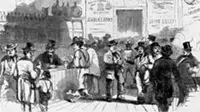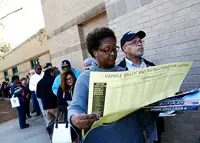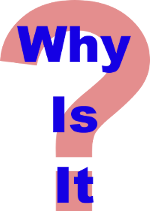|
Why Is It That American Elections Take Place on Tuesday? Elections for President and Congress take place on the first Tuesday after the first Monday in November. How did this come to be? For a start, we have no guidance from the Founding Fathers because the Constitution doesn't specify an election day. It was up to the states to set the date for elections, and the states did so, for many years. Some states had elections on different days than did other states, until 1845, when Congress stepped in and decreed an official Election Day. It would be, as we know, on a Tuesday in November, but it would have to be the first Tuesday after the first Monday. Historians have a variety of reasons for why this decision was made. For the first 100 years or so of America's existence as a nation, people didn't have motorized vehicles and so traveling from place to place took longer than it does today. Not everyone had access to a horse or a wagon or any other kind of transportation "help," either, and so many people had to walk to get to the polling place. 
Polling places were usually in the county seat, and people who lived far from those population centers would naturally take awhile to get to those population centers in order to vote. In some cases, travel might take a full day and so the intended voter would have to stay overnight. Operating on this theory, Congress decided that Election Day could not occur on a Monday because that would require some people, needing a full day or more of travel, to venture forth on Sunday, which was the Christian Sabbath. All kinds of activities, including travel, were frowned on or forbidden, and so Sunday was out as a travel day and Monday was out as Election Day. What about Wednesday? Well, that would be OK with the people who couldn't travel on a Sunday, but Wednesdays were traditionally the day of the week on which market day happened. This was a prime focus for all kinds of activities that didn't involve voting–again, travel to and from market might take some time and effort. So no Wednesday. What about Tuesday? Well, Congress liked Tuesday just fine. But why the first Tuesday after the first Monday? In some years, the first Tuesday in November is November 1. That day was not attractive as Election Day because it was a common day for merchants to do their bookkeeping, which usually took all day, if not more than a day. Also, in the Catholic Church, the 1st of November is All Saints Day, a very holy day that required any number of responsibilities that didn't include taking time out to make it to a polling place to vote. As for November, the answer is farming again. By that month, harvesting was largely done for the year and so farmers could take time out to travel to vote. More technically accurate, federal law stipulated that presidential electors had to meet in the states on the first Wednesday of December (no matter when the first Monday or Tuesday were) and, further, that elections had to take place no more than 34 days before that first Wednesday in December. So in 1845, Congress decreed that starting in 1848, the next presidential election, Election Day for that election would be the first Tuesday after the first Monday in November. And so it was that in 1848, the election for President took place on November 7. (And Zachary Taylor was elected President.) It wasn't until 1875 that elections for the House of Representatives followed that example. And Senate elections didn't, either, until 1914 because until the passage of the 17th Amendment in 1913 that Senators were elected. (Before they, they were appointed by state legislatures.) 
Today, going to the polling place is not the only way that people can vote. Many people can vote absentee or early, provided that they get permission from the necessary authorities. The vast majority of voters, though, still go to polling places on Election Day (and, likely, wait for their turn to vote). Have a suggestion for this feature? Email Dave. |
Social Studies for Kids |





